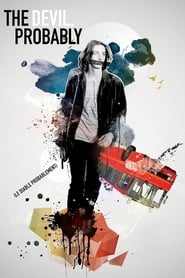— There is but one truly serious philosophical problem and that is suicide (Albert Camus)
[Even] as ideas, political avenues, and ideologies pass through Charles like neutrinos, sometimes sticking, sometimes not, he’s the rare tragic figure in Bresson who sees himself as a free agent, even if that’s a delusion. [A] billion miles from Mouchette, Charles is at the tender, intolerable age where kids know just enough to be aware that a lot of their world is built on bullshit, but they’re clueless as to what, and how much, and so on. A walking swath of flypaper for bad ideas, it seems logical to Bresson that suicide is the most powerful turbine intake for this leaf on the wind.
— Jaime N. Christley (Slant Magazine)
That I share Charles' cynicism but not his self-indulgent fatalism is my good fortune, and having twice had to deal with real-world consequences and complexities of suicide, I can perhaps be forgiven for not sharing his (and by association Bresson's) almost romantic view of it as an inevitable statement of societal abandonment. By choosing to take his own life, by whatever means, Charles does not reject the world in which he lives, but freely participates in that world's rejection of him.
— Slarek (Cine Outsider)
Purity of the simple movement, combined with other elements so that a girl taking items out of a refrigerator to the fine creaking of a fence and the light shock of two full bottles – evoking freshness on their own – shows what a Vermeer would do today with cinema.
— Mireille Latil-Le-Dantec (Cinématographe)

